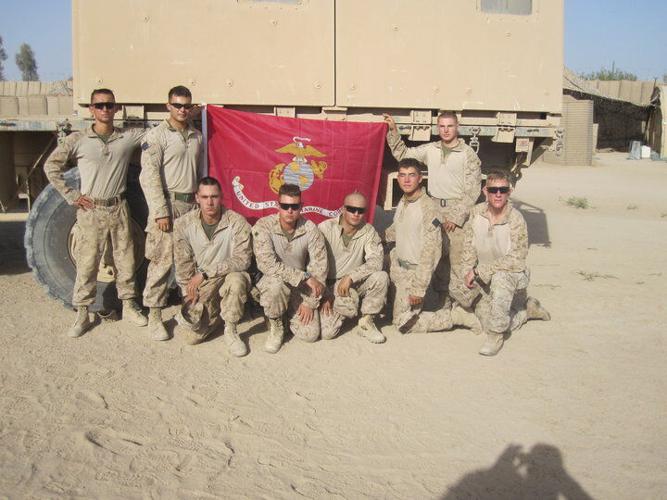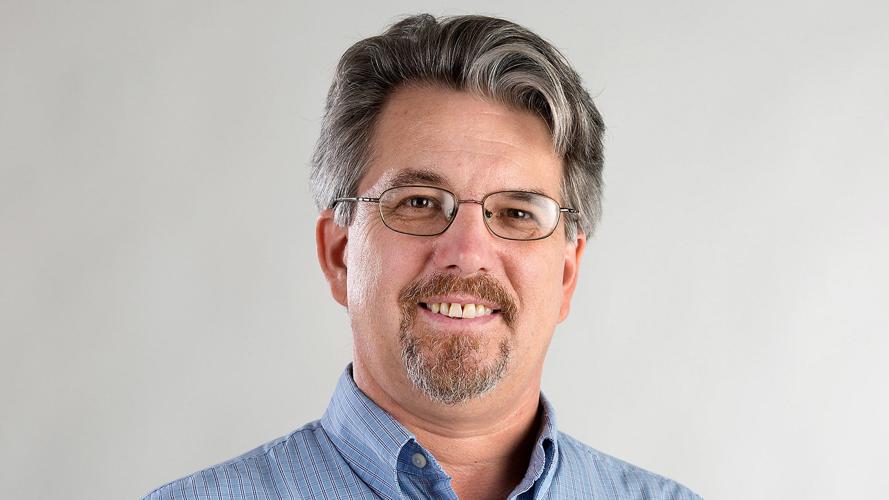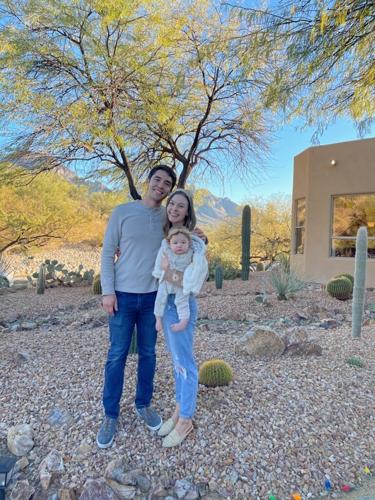The struggle, for so many, comes down to questions of meaning.
What was it all for? What does it mean?
The questions have come bubbling up in the support groups that Dan Cook oversees at the Southern ├█Ķųų▒▓ź VA Health Care System. The VA here and elsewhere has started new groups in recent weeks for veterans upset or confused as they watched the collapse of the Afghan government they propped up, and the takeover by the Taliban they fought.
ŌĆ£The thing weŌĆÖre hearing from a lot of the veterans and the ones coming in for our group is, ŌĆśDoes this mean that the service I gave doesnŌĆÖt matter? Does this mean I was deployed for no reason?ŌĆÖŌĆØ Cook said Friday. ŌĆ£TheyŌĆÖre feeling a little bit let down and like their service was not as meaningful as it could have been.ŌĆØ
The feelings may be especially raw after the bombing Thursday that killed 13 U.S. service members and about 170 Afghans outside the Kabul airport.
People are also reading…
Nobody likes the chaotic way this withdrawal has gone in the last couple of weeks.
But there is also an undercurrent, among some veterans of the Afghan war, of expectations being fulfilled. They didnŌĆÖt want it to end like this, but they knew it would. Sooner or later, we would leave and the Taliban would take over.
That doesnŌĆÖt mean itŌĆÖs not painful, but at least it has the familiarity of the inevitable.
I got a good taste of this perspective last week when listening to and author.
ŌĆ£IŌĆÖve had a lot of people in my life asking my what my opinion is. Am I upset about it? Am I in despair?ŌĆØ Peter Martin said to his online audience Aug. 16. ŌĆ£The reason why the current events are not affecting me as negatively as they probably should be is that all the way back in 2010, I knew this was going to happen. I knew this was an inevitable outcome of what was happening in Afghanistan.ŌĆØ
After I heard Martin calmly lay out his perspective, I sought him out. We spoke by Zoom on Wednesday and again by phone Friday.
Martin, whose father Doug Martin referred me to his video, told me he joined the Marine Corps right after graduating from Canyon del Oro High School in 2008. He went in wanting to fight for a cause.
ŌĆ£IŌĆÖve always had a perspective of just wanting to protect people or help people, and I donŌĆÖt know if joining the military in peacetime would have meant as much to me as joining in war time,ŌĆØ he said.
After training to go into Fallujah in Iraq, MartinŌĆÖs unit ended up shifting gears. The Obama administration, in its first year, was reducing the American presence in Iraq. At the last minute, in January 2010, MartinŌĆÖs unit headed to the outskirts of Marjah, in southern Afghanistan.
They and another unit were assigned to take the city, in the middle of an opium-poppy-growing region.
ŌĆ£We were moving through the suburbs while the other unit was actually helicoptered into the center of the city,ŌĆØ he said. ŌĆ£So we circled the city and fought in. They were dropped in the middle of the city and they fought out, and we all met.ŌĆØ
ŌĆ£The push took about three days. And in those three days, we killed a lot of people, because we just had overwhelming air superiority.ŌĆØ
ŌĆ£The Taliban there werenŌĆÖt hiding,ŌĆØ Martin said. ŌĆ£They had set up ambush positions where they were dug in with sandbags and they were ready to fight to the last man. And they did. They all died.ŌĆØ
Having changed plans at the last minute, his unit didnŌĆÖt get a clear understanding of what the plan was beyond taking the town, but they felt like they could accomplish something for a while. They got to know local people, didnŌĆÖt mess with the poppy crop, and kept the Taliban out.
ŌĆ£So about three months into the deployment, we started to realize what they (American leaders) were trying to do. And what they were trying to do was to build up the Afghan forces to such a level where we can get out. And I think thatŌĆÖs where a lot of the confusion comes from right now.ŌĆØ
In short, what Martin saw of the Afghan military convinced him thereŌĆÖs no way they could reliably take over from the Americans and hold off the Taliban. The soldiers he met from the north despised the people of the south and would rob, molest or even kill the local people, he said.

Peter Martin, his wife Emma and their daughter Fira.
The local people, meanwhile, didnŌĆÖt answer to lines of civil authority easily decipherable to outsiders, but to longstanding tribal power structures. And though some may have liked being rid of the Taliban, they didnŌĆÖt trust it would last.
They were right not to trust. Outgunned for the moment, the Taliban hung back over the border in Pakistan, waiting.
It gradually dawned on Martin and his comrades that what the United States had been trying to achieve just wasnŌĆÖt going to work. It would take way longer than the American public would ever tolerate to establish a strong, plural government and a reliable military.
ŌĆ£Maybe if we would have been there for another 50 years, they might have been able to fight off the Taliban,ŌĆØ Martin said. ŌĆ£But if the Taliban knew that we were going to be there for that long, they would have definitely harassed us a lot more.ŌĆØ
It was a no-win situation.
ŌĆ£When I came back in 2010, thatŌĆÖs when I started to wrestle with the thoughts of ŌĆśThis is useless. What did we even go over there for?ŌĆÖ All of us felt that way.ŌĆØ
Ten members of his approximately 500-man unit had died, and another 75 or so had earned purple hearts, Martin said.
ŌĆ£So coming back and realizing, like, we donŌĆÖt have a plan to win, and our plan to get out is doomed for failure ŌĆö we all knew that coming back home after our first deployment. And thatŌĆÖs why I was so angry. I was just very, very angry and I didnŌĆÖt know who I was really angry with.ŌĆØ
For Martin, comfort eventually came from his Christian faith.
ŌĆ£If you accept the existence of a creator, everything you go through has meaning,ŌĆØ he said. ŌĆ£It has some sort of a point but that point exists independent of you.ŌĆØ
He accepted not knowing the meaning, but trusting GodŌĆÖs purpose.
That helped when, in summer 2011, his unit returned to Marjah. They returned wiser.
ŌĆ£The first time we deployed, it was very gung ho,ŌĆØ Martin said. ŌĆ£The second time we deployed, it was just kind of like, ŌĆśLetŌĆÖs just get home alive.ŌĆÖ That was our motto.ŌĆØ
They did make it back alive, but not unscathed. And in the decade since then, military and government leaders have continued to mislead the public about the outlook in Afghanistan.
In December 2019, a trove it called the Afghanistan Papers. They were government interviews of officials, done in secret, that showed they knew we were doomed even as military and government leaders kept touting ŌĆ£progressŌĆØ to the public.
Douglas Lute, a three-star Army general who served as the White House Afghan war czar under Bush and Obama, said in a 2015 interview: ŌĆ£We were devoid of a fundamental understanding of Afghanistan. ŌĆ” What are we trying to do here? We didnŌĆÖt have the foggiest notion of what we were undertaking.ŌĆØ
Martin has gone on to a career as a biblical counselor at Calvary Christian Fellowship. HeŌĆÖs also written two books, the most recent of which is titled ŌĆ£The Fellowship of Suffering.ŌĆØ
Though he has long been reconciled to the current inevitability, he still sometimes wrestles with what could have been.
ŌĆ£What frustrated me the most back then and still does today is that we could have done something good in that country,ŌĆØ Martin said. ŌĆ£I think we did. I think that in a lot of ways we did something good, but it was something good that was always going to end.ŌĆØ
Tim Steller is an opinion columnist. A 25-year veteran of reporting and editing, he digs into issues and stories that matter in the ├█Ķųų▒▓ź area, reports the results and tells you his conclusions. Contact him at tsteller@tucson.com or 520-807-7789. On Twitter: @senyorreporter


















